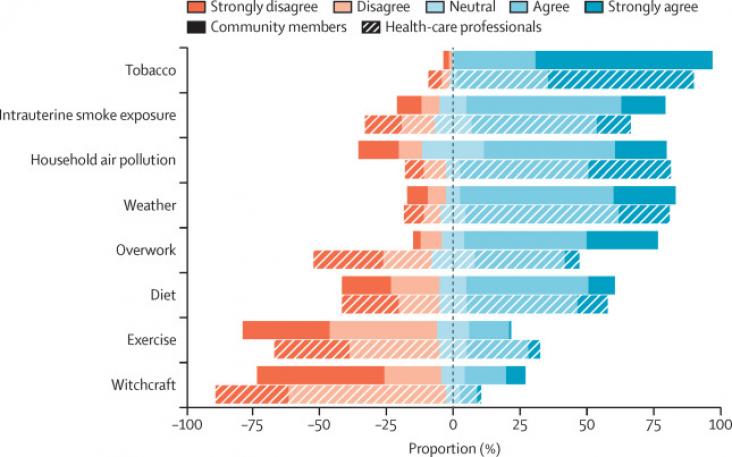Fruits and vegetables are responsible for about 22% of food losses and wastes along the supply chain (not including the retail level).
Proteins serve as an imperative macronutrient in human nutrition and well-being.
This Personal View supports SDGs 3 and 6 by suggesting a scale-specific approach in which agricultural water use is embedded in a larger systems approach to allow the design of effective incentives to change and optimise agricultural water use.
This paper studied the heavy metal concentrations in the study area had a temporal decreasing trend compared to previous studies, which may be due to the reduction in human activities.
The COVID-19 pandemic has devastated communities throughout the world. However, the negative impacts of another pandemic, affecting cities worldwide, arguably rival those of COVID.
Background: Combustion-related nitrogen dioxide (NO2) air pollution is associated with paediatric asthma incidence.

Background: Effectiveness of health programmes can be undermined when the implementation misaligns with local beliefs and behaviours.
Background: Hepatitis C elimination may be possible with broad uptake of direct-acting antiviral treatments (DAAs).
Elsevier,
Biomedical Engineering Applications for People with Disabilities and the Elderly in the COVID-19 Pandemic and Beyond, Volume , 1 January 2022
This content aligns with Goal 3: Good Health and Wellbeing as well as Goal 10: Reducing Inequalities by examining the impact of the COVID-19 pandemic on the physical and mental health of the elderly.
This content aligns with Goal 3: Good Health and Wellbeing as well as Goal 10: Reducing Inequalities by exploring herbal medicines role in depression to provide alternatives to current psychiatric drugs which may cause many induced side effects.
